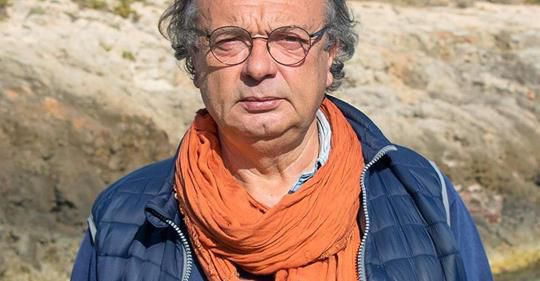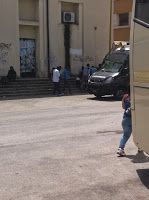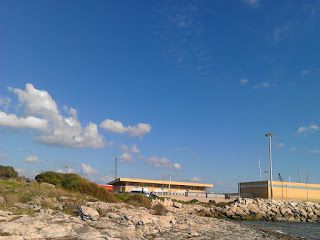Crossing the ocean at age 12. Hundreds of minors have reached the Sicilian coast
The number of unaccompanied minors
who come across the ocean to Sicily is rapidly and continuously increasing.
With almost every landing, dozens if not hundreds of teenagers are registered
who take on the crossing alone and they keep getting younger, such as the 154
Egyptian minors who arrived at Augusta on September, 4th.
The fortress Europe continues to insist
on a superficial and dangerous subdivision in ‘economic migrant’ and ‘potential
asylum seeker’, and, therefore, improves its identification processes and
subsequent deportation. Yet, scores of common people tempt their fate and face
death every day and, thereby, expose the opportunistic, permeable, and
discriminating nature of this classification system.
Once more, we have to ask ourselves
with what boldness Europe sends back hundreds of Moroccans, Tunisians, and
Egyptians; the very people who make up a significant number of the work force
that has held the most difficult and degrading jobs for years and are exploited
in every country of the European Union. Nevertheless, the hypocrisy seems to go
hand in hand with the need for visibility and political constructs, which we
will understand better soon. That is to say, no one asks why hundreds of people
who are almost still children, leave their countries, or what happens in Egypt,
but what is covered instead is the arrivals and, thus, pointing out the necessity
of further militarizing strategies and control as the only means to fight human
trafficking. Sometimes not even this happens. They rather stick with pious
comments employing rhetoric of a good heart and pity to avoid having to talk
about the horrid living conditions in these countries or the business
surrounding these minors. From organized crime, such as human trafficking, to
the business of some of the people involved with so-called reception and first
accommodation centers who unfortunately see managing projects aimed at minors
as a means to receive more money from the state. There are many issues that
need clarification to overcome the fearmongering and manipulative excuses that
call all this an emergency.
What can the arriving minors expect
in Sicily? The 154 Egyptian teenagers who arrived with another 74 migrants in
Augusta last Friday were
brought to the center for first accommodation Umberto I in Siracusa where most of them still reside
today. This is a rather unfortunate placement as the law stipulates relocating
minors to projects specifically designed for them. Umberto I, however, is not
the place where the minors should be even though it was indeed designed to
lodge minors. Save the Children accompanies
the teenagers since their arrival and reported about first relocating efforts
to Campania, Lazio, and other Sicilian centers as well as about the continuous
search for appropriate accommodation for the remaining 95 minors. There seem to
be no more room in Sicily. The average age is very low; some claim to be twelve
even if looking much younger. Their health condition seems relatively good.
Some minors have left the center autonomously, and yesterday some activists spoke of circa ten Egyptian teenagers who camped in Catania’s
train station waiting for a bus to Rome. This serious incident will most likely
repeat itself because of the precarious accommodation conditions.
Lately, numerous Egyptian minors
were also relocated from the CPSA* of Pozzallo, in which they were hopefully
only accommodated for a very short time. Now, some of them are in a reception
center managed by Mediterranean Hope in Scicli, where they started to be in
contact with the outside world and are finally sure to be in a safe place. Yet,
what happens to all the other teenagers in the meantime and what will happen to
those who will arrive in the future?
This morning, September, 12th,
another 145 migrants arrived at the harbor of Ibleo. Among them are 55
unaccompanied minors from Egyptian and Sub-Saharan Africa who are currently
brought to the CPSA*. Reception needs to be prepared according to the law,
there needs to be an attempt to enable accommodation all over Italy and to
guarantee the necessary protection, and there needs to be commenting on the
causes that lead hundreds of minors to risk their lives by crossing the ocean.
A lot of people are willing to share beautiful pictures that are taken with the
minors at their arrival at the harbor, to use the pictures of young faces for
their fundraising campaigns. Still, few are willing to question the causes that
brought these minors here, and too few try to give them the opportunity to create
a future that lives up to the meaning of the word.
Lucia Borghi
Borderline
Sicilia Onlus
*CPSA: Centro di Soccorso e
prima Accoglienza: Primary care and initial reception center.
Translation:
Annika Schadewaldt




